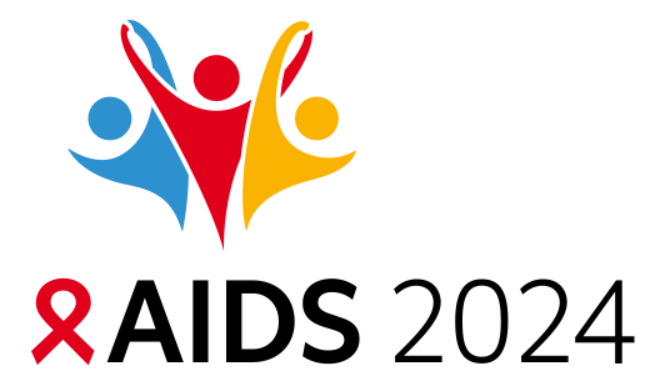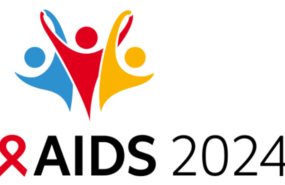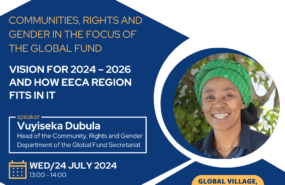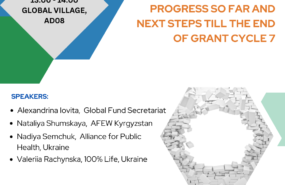Regional Online Meeting for Civil Society Organizations and Communities Affected by TB to Discuss Supporting Political Commitment to End TB During the COVID-19 Pandemic by Strengthening Multisectoral Collaboration and Accountability
- 25.11.2020 10:00
- Post Views: 538
Waiting for you at the In a few hours! Welcome to the Regional Online Meeting for Civil Society Organizations and Communities Affected by TB to Discuss Supporting Political Commitment to End TB During the COVID-19 Pandemic by Strengthening Multisectoral Collaboration and Accountability.
November 27, 2020 at 13:00 Kyiv time.
Please, follow the link to fill out the registration form for participation in the online meeting 👉👉👉 https://forms.gle/LVM4aJXRAdtk3Kcz8
Speakers:
🌟 Aleksandra Vasylenko (TBEC PR-consultant) will present policy brief «COVID-19 – the new reality of tuberculosis control» with the set of clear and applied recommendations for civil society organizations and decision-makers that can help overcome existing barriers and prevent further change for the worse of the TB situation.
🌟 Dr. Sayohat Hasanova (Technical Officer, Country support, Joint TB, HIV and viral hepatitis programme, Division of Health Emergencies and Communicable Diseases, WHO Regional Office for Europe, Regional Global Fund Focal Point on behalf of WHO) will inform about technical collaboration aimed to support multisectoral accountability processes at the country levels, including guidance on the stages of implementation of the MAF-TB approach.
🌟 Yuliya Chorna (International expert) will unpack various dimensions of accountability concept and suggest options on how civil society can be meaningfully involved in implementation of the multisectoral collaboration and accountability, as well as mobilization of political will and commitments to end TB.
🌟 Olga Klymenko (Chair of the Board of TBpeopleUkraine and the National Partnership “StopTB.Ukraine”) will tell about the Ukraine experience in conducting the National Dialogue, as an example of multisectoral interaction of state agencies, civil society organizations and TB-affected community in overcoming barriers on the paths to quality medical and social services in TB care within the framework of the transition from donor to state funding.
🔸After the presentations the additional time will be provided for discussion🔸
❗️Background❗️
🔹The unprecedented political will to end Tuberculosis epidemics – United Nations General Assembly High-level meeting on the fight against TB (UN HLM on TB) held in 2018 – has promoted state’s efforts to reach global and national end TB targets. As the result of the UNGLM on TB, UN Member States signed Political Declaration with specific commitments to accelerate progress towards ending TB.
🔹A few weeks ago, WHO shared the interim review over the achieved progress since the Political Declaration has been signed, which shows that high-level commitments and goals have accelerated global and national progress towards ending TB. However, the urgent and more ambitious investments and actions are required to sustain and scale up the progress, especially in the context of the COVID-19 pandemic.
❓ Why it is important to be involved in support of political commitments to end TB?
👆 Fulfillment of the targets and commitments of the UN HLM Political Declaration on TB is of key importance for social and reputational responsibility of the UN Member States – both for ensuring TB response at the National level and accelerating overall progress in ending the TB epidemic at the global level.
👆 Tuberculosis is a disease, heavily impacted by the social and economic determinants. That’s why it cannot be won over with the efforts of the health sector alone. There is a need to approach the fight with TB from the holistic perspective and the multisectoral approach (MAF-TB) plays a key role.
❓What can you find out?
✔️ The role of civil society organizations, including TB-affected communities in TB response and in launching multisectoral collaboration and accountability at the national level.
✔️ Practical steps to implement the process of multisectoral collaboration, coordination and accountability in the countries of the EECA region.
📍 Languages: English and Russain (simultaneous translation).
If you have any questions related to the webinar, please contact Anna Medvedenko via e-mail 📧 medvedenko@tbcoalition.eu
📑 The event is organized in the framework of “Challenge Facility for Civil Society” grant funded by Stop TB Partnership and with support of the Eurasian Harm Reduction Association (EHRA) within Regional Civil Society and Community Support, Communication and Coordination Platform in Eastern Europe and Central Asia (EECA).
Related News
AIDS 2024: Communities, Rights and Gender in the Focus of the Global Fund: vision for 2024 – 2026 and how EECA region fits in it
24.07. at 13.00 join the community Dialogue with the Head of Community, Rights & Gender Department in the Global Fund Secretariat Post Views: 13 Read moreAIDS 2024: Global Fund Breaking Down Barriers Initiative in EECA: progress so far and next steps till the end of Gran Cycle 7
On the 23rd of July at 13.00 join the session with Alexandrina Iovita, Senior Technical Advisor, Human Rights, Community Rights and Gender Department, Global Fund Secretariat Post Views: 12 Read moreEECA Region Space Schedule during AIDS 2024

Welcome to the EECA Region Space at the Global Village during AIDS 2024 Conference! Our dedicated space at the Global Village is designed to highlight the unique perspectives and experiences of the EECA region, fostering collaboration and inspiring action. Join us for a series of engaging sessions, workshops, and presentations that will explore a wide range of topics.
Services for migrants and refugees from Ukraine – HIV/TB care with a focus on key populations
Due to the increasing flows of refugees from Ukraine because of Russia’s invasion of Ukraine, the EECA Regional Platform created a spreadsheet to fill contacts details of face-to-face and online services for refugees and migrants (with a focus on HIV/TB care and key population groups).
Regional Platform – EECA
This web-resource is a part of new regional communication and coordination project “Regional Civil Society and Community Support, Coordination and Communication Platform - EECA”, implemented by Eurasian Harm Reduction Association (EHRA).
Tags
See also
-
Events with Global Fund Speakers at AIDS 2024 17.07.2024 14:43
-
EECA Region Space Schedule during AIDS 2024 12.07.2024 11:14
-
Two Requests for Proposals from the Global Fund 04.07.2024 11:42
-
EECA’s Regional Platform monthly Newsletter #6, July 2024 04.07.2024 11:28







